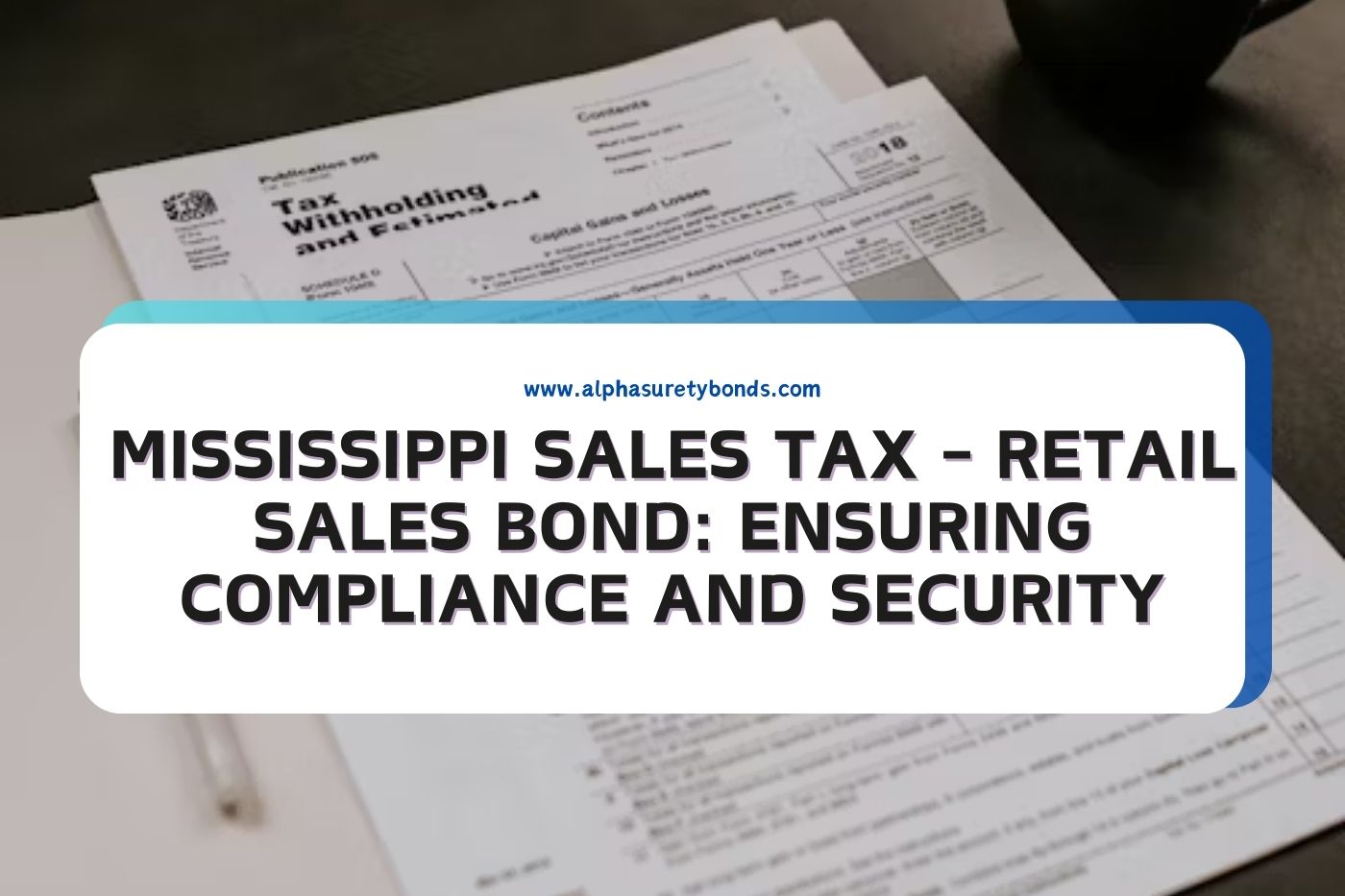Get An Instant Quote on Mississippi Sales Tax – Retail Sales Bond
Operating a retail business in Mississippi involves not only managing day-to-day operations but also complying with state tax regulations. One crucial aspect of these regulations is the Mississippi Sales Tax – Retail Sales Bond. This bond is a safeguard, ensuring that retail businesses collect and remit sales tax to the state diligently and accurately. It protects the state’s financial interests by guaranteeing that taxes collected from consumers are fully reported and paid.
The requirement of a sales tax bond is a common practice in many states, particularly for businesses that handle substantial amounts of taxable sales. This bond is especially important in retail, where the volume of transactions can significantly affect state tax revenues. By maintaining this bond, retailers demonstrate their commitment to operating within the legal frameworks set by the state, enhancing their credibility with both the government and their customers.
Securing a Mississippi Sales Tax – Retail Sales Bond is not only about meeting legal obligations but also about building trust. It reassures the state and the public that the retailer is a responsible merchant who adheres to tax laws and contributes fairly to the community’s economic health.
Let’s explore more about who needs this bond, the benefits it offers, and how to obtain it, ensuring your retail business operates smoothly and in compliance with Mississippi tax laws.
Who is This For?
This bond is vital for a range of parties involved in the retail industry in Mississippi:
- Retail Business Owners: Mandatory for most retail operations, particularly those with high sales volumes or those new to the business.
- State Tax Authorities: Helps ensure compliance with tax regulations, facilitating easier collection and enforcement of sales tax dues.
- Consumers: Provides reassurance that the retailers they are purchasing from comply with state laws and contribute to the state’s economy.
Features of the Bond
The Mississippi Sales Tax – Retail Sales Bond offers several benefits:
- Fiscal Responsibility: Ensures that retail businesses are financially responsible for remitting sales tax, securing state revenue.
- Regulatory Compliance: Encourages adherence to tax laws, promoting fair business practices across the retail sector.
- Consumer Trust: Enhances the trust that consumers place in businesses, knowing they are legally compliant and financially transparent.
- Risk Mitigation: Minimizes the risk of tax evasion and the resulting penalties for the state and businesses alike.
Procedure on How to Get the Bond
To obtain a Mississippi Sales Tax – Retail Sales Bond, follow these essential steps:
- Determine the Bond Requirement: Check with the Mississippi Department of Revenue to understand the specific bond amount required for your business based on your annual sales volume.
- Apply with a Surety: Submit an application to a licensed surety bond provider, including financial documents that demonstrate your business’s fiscal health.
- Undergo Evaluation: The surety will assess your financial stability and risk level to determine the premium you will need to pay for the bond.
- Issue the Bond: Once approved, pay the premium and receive your bond, completing your compliance requirements with the state tax regulations.
Why Choose Alpha Surety Bonds
Choosing Alpha Surety Bonds for your Mississippi Sales Tax – Retail Sales Bond offers distinct advantages:
- Expert Guidance: We specialize in tax-related surety bonds, providing you with expert advice tailored to your specific business needs.
- Competitive Rates: Our access to a wide range of surety markets ensures you get the most cost-effective solution for your bonding needs.
- Quick and Efficient Service: Our streamlined application and issuance process means you can meet your legal obligations quickly and get back to focusing on your business operations.
- Comprehensive Support: Our team is dedicated to supporting you throughout the duration of your bond, helping you navigate any challenges and ensuring continuous compliance.



